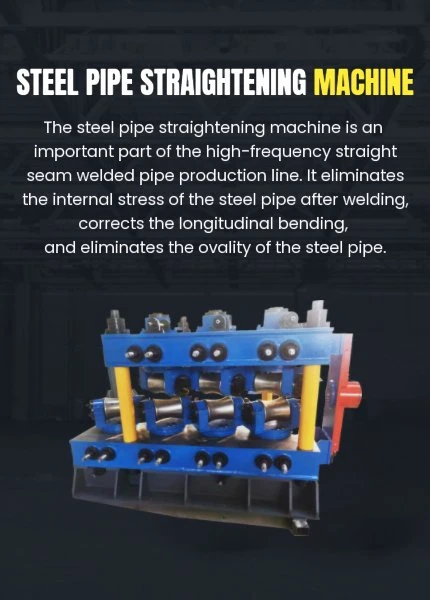Water Pipe Welding Equipment for Efficient Construction and Repair Solutions
The Evolution and Importance of Water Pipe Welding Machines
Water pipe welding machines play a crucial role in the construction and maintenance of infrastructure that utilizes plumbing systems. These machines are specifically designed to join high-density polyethylene (HDPE) or other types of plastic pipes used in water supply systems. The advent of these advanced welding technologies has significantly impacted the efficiency and quality of pipe installations in various industries, including municipal water services, agriculture, and industrial applications.
Understanding Water Pipe Welding Machines
At the core of water pipe welding is the process of creating strong, leak-proof joints between pipe segments. Water pipe welding machines employ various methods to accomplish this, most notably the butt fusion and electrofusion processes.
1. Butt Fusion This method involves heating the ends of the pipe segments until they are softened and then bringing them together under pressure to form a reliable bond as the materials cool down. This process is well-regarded for producing high-strength joints suitable for a wide range of applications.
2. Electrofusion This method uses an electric current to heat an embedded coil within a special fitting, melting it into the surfaces of the pipes being joined. Electrofusion is particularly useful in situations where pipes are installed in tight spaces or where alignment might be an issue, providing a consistent and reliable weld.
These machines are equipped with technology that allows for precise temperature control and timing, ensuring that the welds produced are optimal and durable. With advancements in technology, many modern welding machines are now fully automatic or semi-automatic, improving efficiency and reducing the need for skilled labor.
The Advantages of Using Water Pipe Welding Machines
The use of water pipe welding machines offers several advantages
- Durability Joints created by these machines are often more robust than those made with traditional methods, such as welding metals or using mechanical fittings. This durability translates into lower maintenance costs and longer service life for water lines.
- Speed and Efficiency Automated welding machines can significantly reduce the time required to complete water pipe installations. This efficiency helps in meeting project deadlines and reduces labor costs associated with lengthy installations.
water pipe welding machine

- Leak Prevention Properly welded joints minimize the risk of leaks, which can lead to significant water loss and contamination. This feature is especially important in municipal water systems where maintaining water quality is paramount.
- Cost-Effective Although the initial investment in advanced welding machines can be substantial, the long-term savings due to reduced maintenance, lower water loss, and quicker installation times often outweigh this upfront cost
.The Role of Technology in Water Pipe Welding
The integration of technology into water pipe welding machines has transformed traditional pipe joining methods. Many of these machines now come with digital controls that allow operators to monitor and adjust parameters for optimal performance. Technologies such as data logging and real-time monitoring systems help ensure quality control and provide valuable insights for future projects.
Moreover, mobile welding machines enhance on-site capabilities, allowing for immediate repairs or installations without the need for transporting materials back to a central location. This mobility not only saves time but also contributes to increased efficiency in urban and rural projects alike.
Challenges and Future Directions
Despite the many advantages, there are challenges associated with water pipe welding machines. Initial costs can deter some organizations from investing in new equipment, especially in regions where budgets for infrastructure improvements are limited. Additionally, the skilled workforce required to operate these machines effectively is often in short supply.
Looking to the future, as technology continues to advance, we can anticipate further improvements in automation, safety features, and overall performance of water pipe welding machines. Innovations such as artificial intelligence could enhance workload management and predictive maintenance, ensuring that machines operate at peak efficiency.
Conclusion
In summary, water pipe welding machines are indispensable tools in modern plumbing systems. They enhance the quality and reliability of water supply infrastructures while offering numerous benefits in terms of durability, efficiency, and cost. As technology evolves, we can expect these machines to become even more sophisticated, ensuring that our water systems remain robust and efficient in the face of growing global demands. Investing in these advanced technologies will be crucial for sustaining our water resources and maintaining the integrity of essential infrastructure.
-
High Frequency Straight Seam Welded Pipe Production Line-BzZhou Xinghua Machinery Equipment Manufacturing Co., LTD.|Precision Welding, High EfficiencyNewsJul.30,2025
-
High Frequency Straight Seam Welded Pipe Production Line|BzZhou Xinghua|Precision Welding&EfficiencyNewsJul.30,2025
-
High Frequency Straight Seam Welded Pipe Production Line - BzZhou Xinghua|Precision Engineering&EfficiencyNewsJul.30,2025
-
High-Frequency Straight Seam Welded Pipe Production Line-BzZhou Xinghua Machinery Equipment Manufacturing Co., LTD.NewsJul.30,2025
-
High-Frequency Straight Seam Welded Pipe Production Line-BzZhou Xinghua Machinery Equipment Manufacturing Co., LTD.|Precision Manufacturing, High EfficiencyNewsJul.30,2025
-
High Frequency Straight Seam Welded Pipe Production Line-BzZhou Xinghua Machinery Equipment Manufacturing Co., LTD.|Precision Steel Pipe Manufacturing&Industrial EfficiencyNewsJul.29,2025


